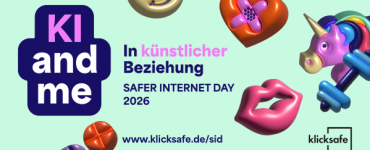- Reduction of bureaucracy: 44 percent of German decision-makers see the need for more action
- 45 percent of companies consider the German legal framework to not be innovation-friendly
- eco once again a core member of the BMWi Advisory Board „Young Digital Economy“
Despite all the political advances in business development, corporate decision-makers across all sectors in Germany still see much room for improvement. In particular, German bureaucracy continues to be a major obstacle for companies. Almost half (44 percent) of the German business decision-makers therefore see the need for swift action to reduce red-tape, according to a representative survey from March 2017, which was conducted by the opinion research institute YouGov on behalf of eco – Association of the Internet Industry.
“Founding companies must become easier. The high bureaucratic requirements make the lives of German startups more difficult, and thus create unnecessary hurdles that harm the development of Germany as an attractive digital location,” says Harald A. Summa, CEO at eco Germany.
For many years now, eco as an association for the Internet industry has pushed for a successful startup policy and was again appointed by Brigitte Zypries, Federal Minister of Economics and Energy, to the advisory board “Young Digital Economy” in order to develop the information and communication economy as a central future industry in Germany.
Framework conditions: 45 percent of companies consider the German legal framework to not be innovation-friendly
With the ongoing digitalization and technological progress, the requirements of modern business development have also changed; now the main objective is to further push the digital transformation of society and economy. For this reason, the economy desperately needs a more reliable investment and innovation-friendly environment, says Summa.
Currently, however, almost half (45 percent) of corporate decision-makers believe that the German legal framework is rather hostile towards innovation, according to the results of the eco survey. Conditions that are more favorable could provide the basis for tackling the general reluctance of German companies towards investment, and for sparking entrepreneurship.
Christina Barleben, who co-founded the startup “Thoughtfish” in 2013, shares this view and argues that “public funds should be spent with more courage and confidence in order to support entrepreneurs that want to further develop their companies. There should be less paperwork, more flexible payment modalities, and more freedom in the use of approved funds.”
eco once again a core member of the BMWi Advisory Board „Young Digital Economy“
For more than three years, eco has contributed the versatile dialogue within the “Young Digital Economy” advisory council, with the objective to support the young digital economy and to bring together members from the German entrepreneurial scene and political administration. Harald A. Summa, eco CEO, was once again appointed to the “Young Digital Economy” advisory board this year as a core member. “The founders of today are the employers of tomorrow. That is why the political commitment and the dialogue with the economy within the format of the advisory board must be continued, also in the next legislature period,” says Summa.
Further information:
An infographic of the eco survey, as well as a detailed interview on business development with Christina Barleben, CEO & co-founder Thoughtfish GmbH, are available here (both in German).
More information about digital politics can be found on the new eco website http://eco-digitalpolitik.berlin (only in German).




